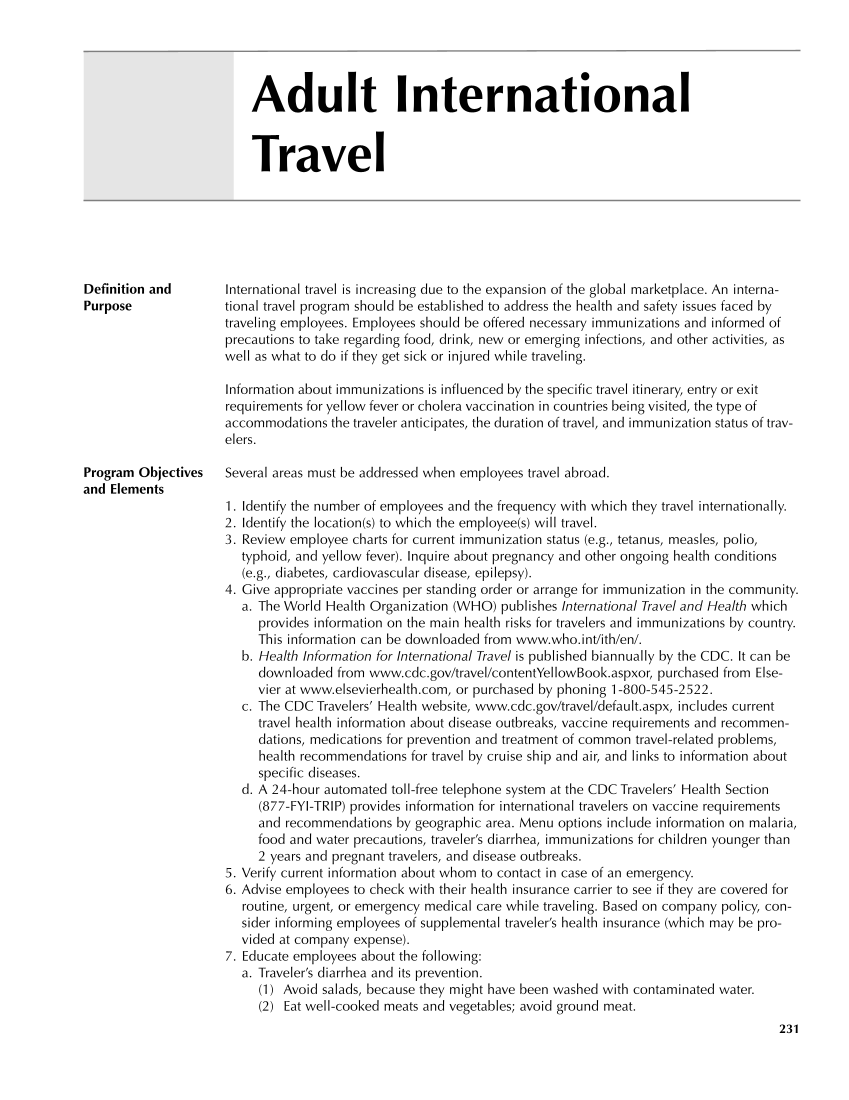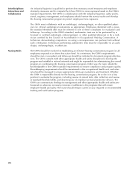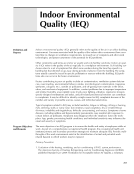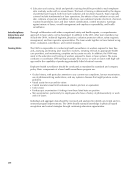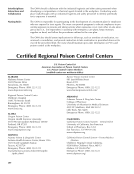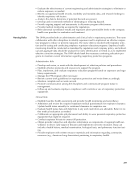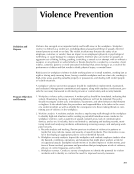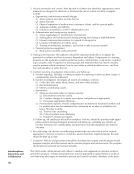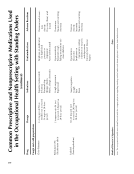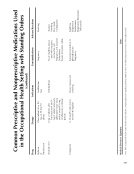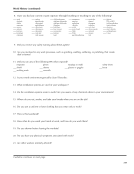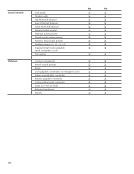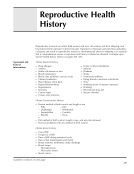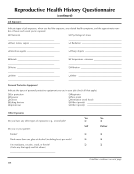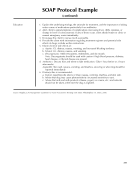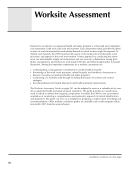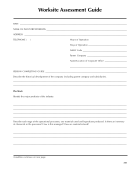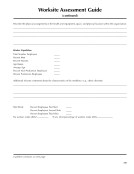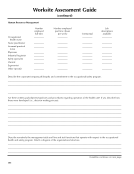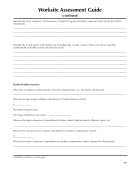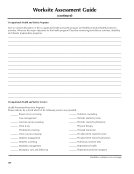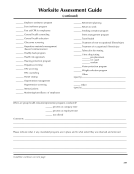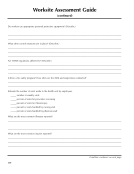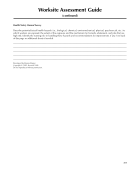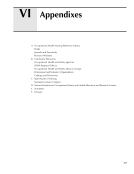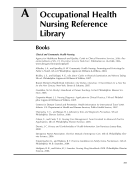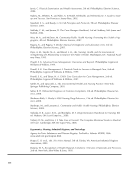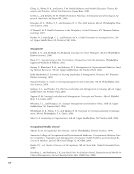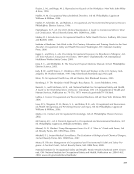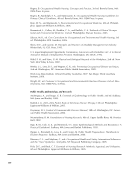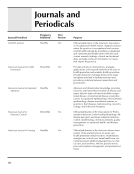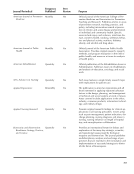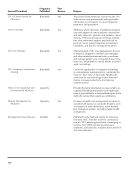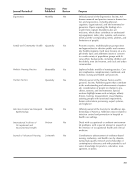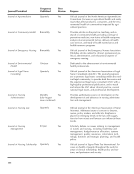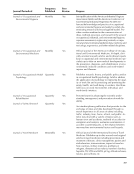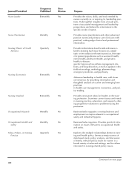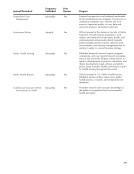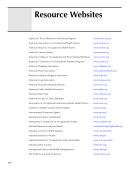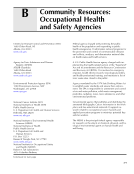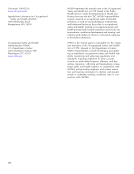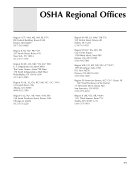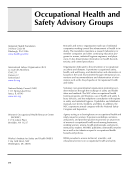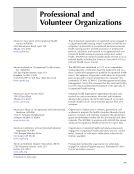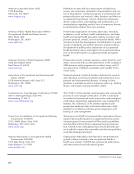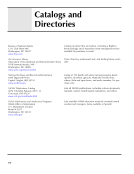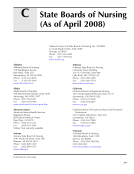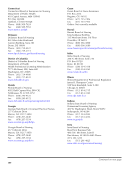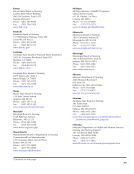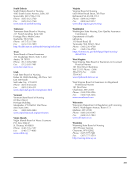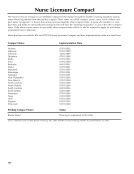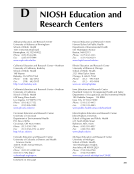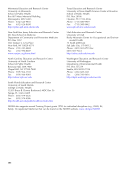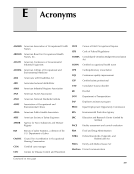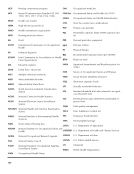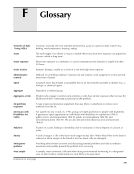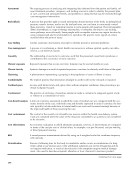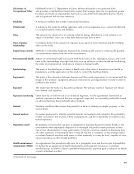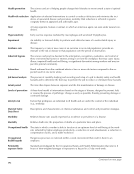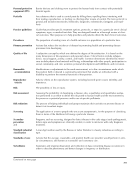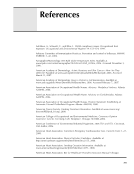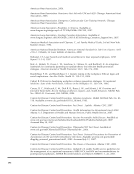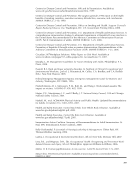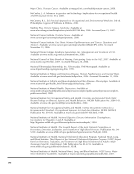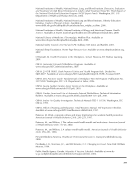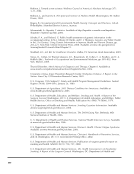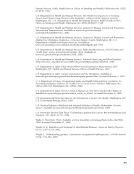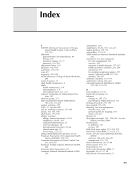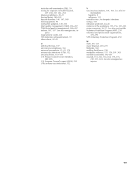International travel is increasing due to the expansion of the global marketplace. An interna- tional travel program should be established to address the health and safety issues faced by traveling employees. Employees should be offered necessary immunizations and informed of precautions to take regarding food, drink, new or emerging infections, and other activities, as well as what to do if they get sick or injured while traveling. Information about immunizations is influenced by the specific travel itinerary, entry or exit requirements for yellow fever or cholera vaccination in countries being visited, the type of accommodations the traveler anticipates, the duration of travel, and immunization status of trav- elers. Several areas must be addressed when employees travel abroad. 1. Identify the number of employees and the frequency with which they travel internationally. 2. Identify the location(s) to which the employee(s) will travel. 3. Review employee charts for current immunization status (e.g., tetanus, measles, polio, typhoid, and yellow fever). Inquire about pregnancy and other ongoing health conditions (e.g., diabetes, cardiovascular disease, epilepsy). 4. Give appropriate vaccines per standing order or arrange for immunization in the community. a. The World Health Organization (WHO) publishes International Travel and Health which provides information on the main health risks for travelers and immunizations by country. This information can be downloaded from www.who.int/ith/en/. b. Health Information for International Travel is published biannually by the CDC. It can be downloaded from www.cdc.gov/travel/contentYellowBook.aspxor, purchased from Else- vier at www.elsevierhealth.com, or purchased by phoning 1-800-545-2522. c. The CDC Travelers’ Health website, www.cdc.gov/travel/default.aspx, includes current travel health information about disease outbreaks, vaccine requirements and recommen- dations, medications for prevention and treatment of common travel-related problems, health recommendations for travel by cruise ship and air, and links to information about specific diseases. d. A 24-hour automated toll-free telephone system at the CDC Travelers’ Health Section (877-FYI-TRIP) provides information for international travelers on vaccine requirements and recommendations by geographic area. Menu options include information on malaria, food and water precautions, traveler’s diarrhea, immunizations for children younger than 2 years and pregnant travelers, and disease outbreaks. 5. Verify current information about whom to contact in case of an emergency. 6. Advise employees to check with their health insurance carrier to see if they are covered for routine, urgent, or emergency medical care while traveling. Based on company policy, con- sider informing employees of supplemental traveler’s health insurance (which may be pro- vided at company expense). 7. Educate employees about the following: a. Traveler’s diarrhea and its prevention. (1) Avoid salads, because they might have been washed with contaminated water. (2) Eat well-cooked meats and vegetables avoid ground meat. 231 Definition and Purpose Program Objectives and Elements Adult International Travel
Purchased from OEM Press by (ge corporate access). (C) 2013 OEM Health Information, Inc. All rights reserved.
